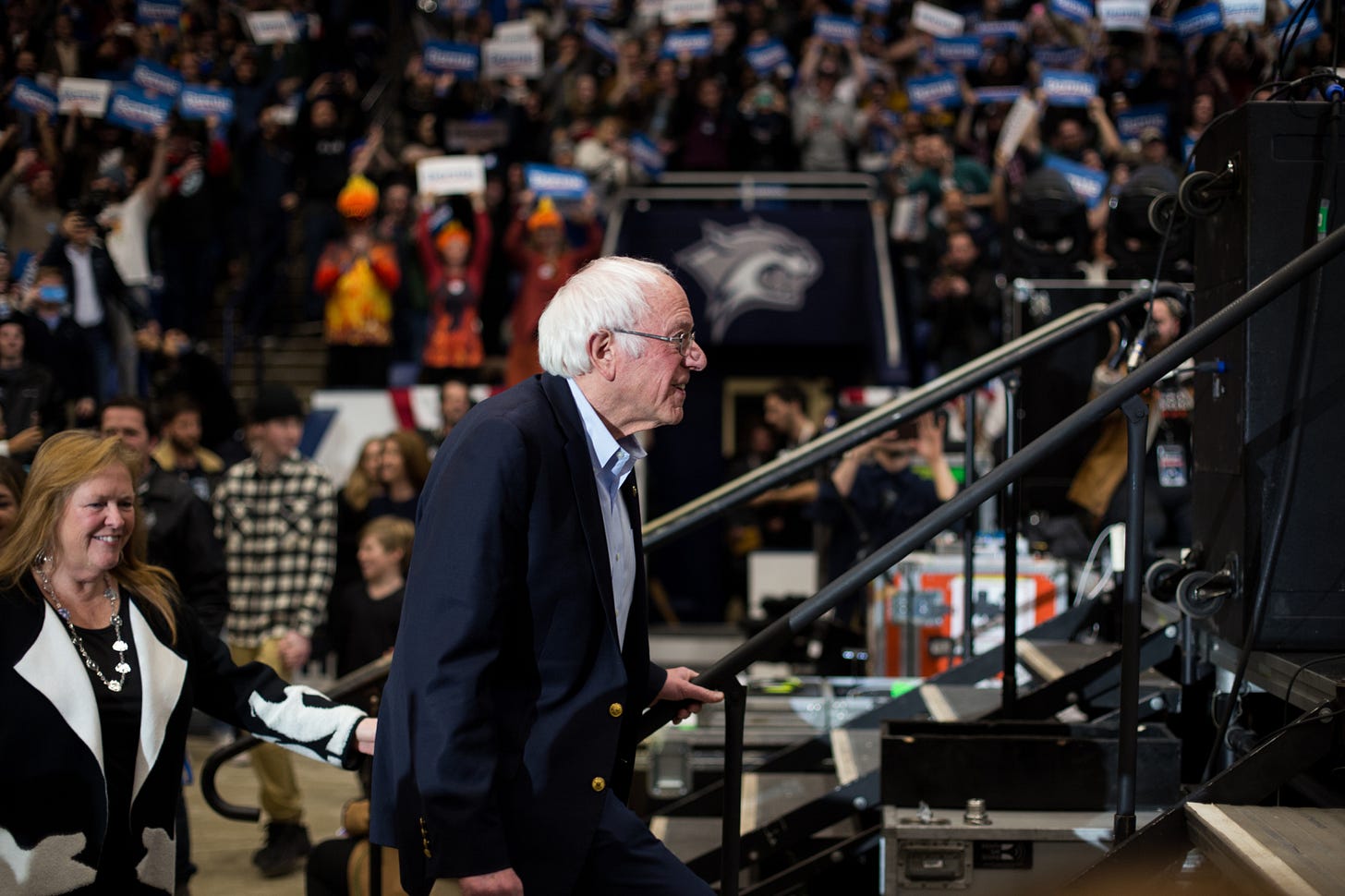There Is No Time For Despair

Bernie Sanders' 2020 presidential campaign is over. He was the best candidate for the office that has run in decades, and he almost certainly will never run for president again.
That is fine. We are done with him now. Bernie Sanders is replaceable and will be replaced. The people who are in power now will not be in power forever.
Right now they are strong. There is no way around this. They were stronger than the populist movement that Bernie Sanders invigorated in 2016 and they are stronger than the movement he continued this cycle. But what they also are is afraid, because their power is waning.
Young people in this election supported Bernie Sanders over any of his challengers by astounding margins. In New Hampshire in February, I talked to a girl who was too young to vote but had successfully persuaded both of her parents to go to the polls and vote for Sanders. When I asked her why she liked him she said nothing about him as a person and instead launched directly into a detailed rundown of his platform: free public universities, student debt relief, aggressive action on climate change. Young people like old-ass Bernie as a candidate, sure, but what many of them connect with is what he represents and how it can improve their lives.
Bernie Sanders is not the only one who can make those arguments. He is not the only candidate we will ever get that shares our views. He was a remarkably honest and by all appearances fundamentally decent person, but the campaign to elect him was always more about the better society he could help us create.
There is still a path to get there. What we cannot do now is give in to despair. Electoral politics is a tool to create change, but there are many others: labor organizing, direct action, community involvement. Opportunities to use these tools are everywhere.
It is tempting, with this in mind, to give up on the ballot box, especially when electoral politics are reduced to a cynical question of "harm reduction" and choosing the lesser evil between two despicable options. But the small differences in degrees of evil matter to people on the margins. We should not have to choose a lesser evil, and we should never have to settle, but if ticking a box on a piece of paper in a swing state can potentially make it so slightly fewer human beings die of thirst in the Sonoran Desert then it's probably worth a shot. The Supreme Court still wields immense power over the future of our country and Ruth Bader Ginsburg isn't getting any younger.
Fortunately, the two paths are not mutually exclusive. You can fill out a ballot for Joe Biden and throw a brick through a bank window on the same day. I'm not necessarily saying you should, but it is certainly possible. And if electoral politics reduces even a small amount of harm in 2021, then direct action has that much less ground to make up.
Bernie Sanders and many of the good people who work for him understand this. It's almost certain he will endorse Biden, and likely that he'll do far more than the bare minimum to help him be elected. But I'm certain his campaign and supporters will also continue the work they have been doing for years: organizing on the ground, knocking on doors, contributing direct aid, and helping people use their own voices on a national platform. This work will inspire successors: Alexandria Ocasio-Cortez got into politics while organizing on Sanders' last campaign. When another candidate comes along who shares our views, we'll be ready to support them, criticize them, and push them to be better. There will be other chances to make change, and there is plenty to fight for in the meantime.
Lead image by Jack Crosbie





